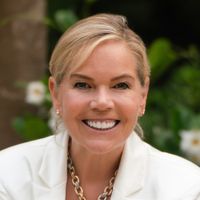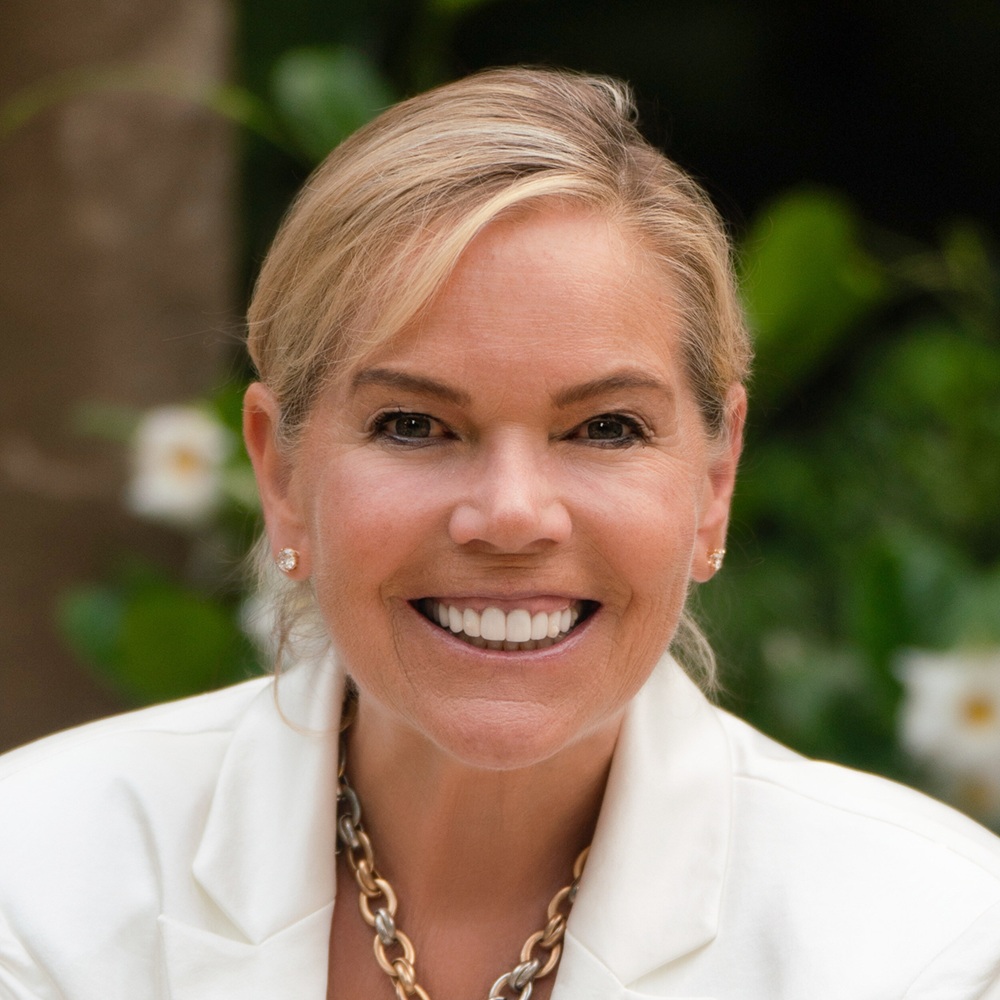How to Get Your Money's Worth From Your Financial Adviser
A good financial adviser will focus on how your financial planning and investment strategy align with your lifestyle and aspirations.


Profit and prosper with the best of Kiplinger's advice on investing, taxes, retirement, personal finance and much more. Delivered daily. Enter your email in the box and click Sign Me Up.
You are now subscribed
Your newsletter sign-up was successful
Want to add more newsletters?

Delivered daily
Kiplinger Today
Profit and prosper with the best of Kiplinger's advice on investing, taxes, retirement, personal finance and much more delivered daily. Smart money moves start here.

Sent five days a week
Kiplinger A Step Ahead
Get practical help to make better financial decisions in your everyday life, from spending to savings on top deals.

Delivered daily
Kiplinger Closing Bell
Get today's biggest financial and investing headlines delivered to your inbox every day the U.S. stock market is open.

Sent twice a week
Kiplinger Adviser Intel
Financial pros across the country share best practices and fresh tactics to preserve and grow your wealth.

Delivered weekly
Kiplinger Tax Tips
Trim your federal and state tax bills with practical tax-planning and tax-cutting strategies.

Sent twice a week
Kiplinger Retirement Tips
Your twice-a-week guide to planning and enjoying a financially secure and richly rewarding retirement

Sent bimonthly.
Kiplinger Adviser Angle
Insights for advisers, wealth managers and other financial professionals.

Sent twice a week
Kiplinger Investing Weekly
Your twice-a-week roundup of promising stocks, funds, companies and industries you should consider, ones you should avoid, and why.

Sent weekly for six weeks
Kiplinger Invest for Retirement
Your step-by-step six-part series on how to invest for retirement, from devising a successful strategy to exactly which investments to choose.
Years ago, as a stockbroker at a major brokerage firm, my job was straightforward: offer stock recommendations and hot tips. Clients came to me asking, “Where’s the best place to put my money right now?” With minimal context, I could easily direct them into investments that seemed (possibly) perfect for them and earned a nice commission for me. Back then, it wasn’t about financial advice; it was about instant gratification.
These days, you’re shortchanging yourself if you focus only on investments. Your financial life is more complex, and many financial advisers offer more than just investment advice. You should be receiving qualified financial advice that involves all aspects of your life.
This is where investors and advisers are not always aligned. A Morningstar survey asked both groups to rank the importance of 15 adviser attributes. Investors tended to focus on traditional services, such as generating investment returns, and undervalued the arguably more valuable interpersonal services that advisers offer.
From just $107.88 $24.99 for Kiplinger Personal Finance
Become a smarter, better informed investor. Subscribe from just $107.88 $24.99, plus get up to 4 Special Issues

Sign up for Kiplinger’s Free Newsletters
Profit and prosper with the best of expert advice on investing, taxes, retirement, personal finance and more - straight to your e-mail.
Profit and prosper with the best of expert advice - straight to your e-mail.
For example, most investors ranked “Helps me stay in control of my emotions” last, despite research showing that advisers acting as behavioral coaches is one of the most impactful services. This lack of appreciation for personalization and behavioral coaching can lead to missed opportunities for increasing overall wealth.
Fortunately, you can ensure that you’re not missing out. By understanding what a good adviser should provide and actively seeking those qualities, you can find the help you need and more. Here’s how.
Understand the limitations of traditional advice
In the past, a typical conversation with a financial adviser would go something like this:
You: How are my returns looking for the year?
Adviser: The market’s been strong, and our bonds have shorter durations. Our portfolios are outperforming the S&P by more than 5%. Let me show you how well we’re doing on the graph we sent you in your quarterly statement and our outlook for the next couple of quarters. Got any questions?
The problem with this approach is that it focuses almost entirely on economic and business cycles, with little consideration for how your personal investment strategy aligns with your lifestyle and aspirations. If 90% of the discussion is about external factors and only 10% on how you feel or envision your lifestyle, that’s a huge miss. After all, you’ve hired an adviser to support your lifestyle and alleviate fears about running out of money during your lifetime. Getting there can mean having to change the conversation — or finding a better adviser.
Set the right expectations
Let’s fast-forward to today, where now it’s the internet that’s the go-to source for hot tips and get-rich-quick investment schemes. People now seek financial advisers because their financial lives have become more layered and complex or because significant life changes require expert guidance. This is where holistic advice comes into play, giving you the opportunity to get more from your adviser and for your adviser to provide more.
The industry has a special term for this added value: “gamma,” a concept designed to quantify the benefits of intelligent financial planning decisions. It involves addressing decisions for a wide range of needs, from helping couples manage money to caring for special needs children, managing stock options, rolling over a 401(k) and preparing for retirement. I call this holistic financial advice, or lifestyle planning.
When you clearly articulate the reasons you want help, you’re setting expectations that can be met.
However, there can be a disconnect between your real motivations and the adviser you hire. Too many financial advisers lack the expertise to provide true holistic advice, focusing only on portfolio performance without considering your family, cash flows, real estate, legacy plans, retirement withdrawal strategies or Roth conversions. Quarterly meetings can become dull and perfunctory, leaving both you and your adviser uninspired.
The solution is to keep your best interests first at all times.
Put your needs first — and make sure your adviser does, too
The key to a truly rewarding adviser relationship is to prioritize your life, fears and aspirations. Having the right adviser is crucial to making this work.
Leslie Gagnon, living in Falmouth, Mass., illustrates this well. Despite her background — her father was a stockbroker and her ex-husband a banker — Leslie felt behind in her financial knowledge. Post-divorce, she prioritized her lifestyle in her advisory meetings, explaining: “Being divorced and feeling like an outsider means I have to put my lifestyle front and center whenever I meet with my adviser — that’s on me. And in my case, I’m lucky to have an adviser who starts every discussion connecting the dots between whatever she’s seeing and doing and how it fortifies my lifestyle.”
Her adviser, Dana Mascalo, CFP®, AAMS®, C(k)P® and Registered Life Planner® from TrinityPoint Wealth, is part of my Wealthramp network of vetted fee-only, fiduciary advisers. Her plan isn’t just built around portfolio returns or tax strategies, but with a deep understanding of her priorities: her children’s financial well-being and her legacy. As she explains, “When I talk to Leslie, it’s always about her lifestyle and priorities first. Each Zoom meeting connects market discussions with how we navigate external changes. It’s vital that Leslie becomes more confident in herself and knows she can count on us as the years go on.”
Your investments play a key role in driving the growth that later becomes your income after you stop working. But as this real-life example shows, a good adviser considers all aspects of your life — family, health, real estate, tax strategies, debt, job security, employee benefits, insurance, estate planning — everything!
You need an adviser who leverages their skills and resources as a tool in order to spend more time listening to you. This is how you truly get your money’s worth from a financial adviser.
Related Content
- Should I Pay a Financial Adviser an Assets Under Management Fee?
- Want to Hire a Remote Financial Adviser? What to Consider
- I Didn’t Think I Needed an Estate Plan Until This Happened
- Retirement Tips for 2024 From Five Retirement Experts
- Five Things I Wish I’d Known Before I Retired
Profit and prosper with the best of Kiplinger's advice on investing, taxes, retirement, personal finance and much more. Delivered daily. Enter your email in the box and click Sign Me Up.

With more than 25 years in investor advocacy, Pam Krueger is the founder and CEO of Wealthramp, an SEC-registered adviser matching platform that connects consumers with rigorously vetted and qualified fee-only financial advisers. She is also the creator and co-host of the award-winning MoneyTrack investor-education TV series, seen nationally on PBS, and Friends Talk Money podcast.
-
 The New Reality for Entertainment
The New Reality for EntertainmentThe Kiplinger Letter The entertainment industry is shifting as movie and TV companies face fierce competition, fight for attention and cope with artificial intelligence.
-
 Stocks Sink With Alphabet, Bitcoin: Stock Market Today
Stocks Sink With Alphabet, Bitcoin: Stock Market TodayA dismal round of jobs data did little to lift sentiment on Thursday.
-
 Betting on Super Bowl 2026? New IRS Tax Changes Could Cost You
Betting on Super Bowl 2026? New IRS Tax Changes Could Cost YouTaxable Income When Super Bowl LX hype fades, some fans may be surprised to learn that sports betting tax rules have shifted.
-
 The 4 Estate Planning Documents Every High-Net-Worth Family Needs (Not Just a Will)
The 4 Estate Planning Documents Every High-Net-Worth Family Needs (Not Just a Will)The key to successful estate planning for HNW families isn't just drafting these four documents, but ensuring they're current and immediately accessible.
-
 Love and Legacy: What Couples Rarely Talk About (But Should)
Love and Legacy: What Couples Rarely Talk About (But Should)Couples who talk openly about finances, including estate planning, are more likely to head into retirement joyfully. How can you get the conversation going?
-
 How to Get the Fair Value for Your Shares When You Are in the Minority Vote on a Sale of Substantially All Corporate Assets
How to Get the Fair Value for Your Shares When You Are in the Minority Vote on a Sale of Substantially All Corporate AssetsWhen a sale of substantially all corporate assets is approved by majority vote, shareholders on the losing side of the vote should understand their rights.
-
 How to Add a Pet Trust to Your Estate Plan: Don't Leave Your Best Friend to Chance
How to Add a Pet Trust to Your Estate Plan: Don't Leave Your Best Friend to ChanceAdding a pet trust to your estate plan can ensure your pets are properly looked after when you're no longer able to care for them. This is how to go about it.
-
 Want to Avoid Leaving Chaos in Your Wake? Don't Leave Behind an Outdated Estate Plan
Want to Avoid Leaving Chaos in Your Wake? Don't Leave Behind an Outdated Estate PlanAn outdated or incomplete estate plan could cause confusion for those handling your affairs at a difficult time. This guide highlights what to update and when.
-
 I'm a Financial Adviser: This Is Why I Became an Advocate for Fee-Only Financial Advice
I'm a Financial Adviser: This Is Why I Became an Advocate for Fee-Only Financial AdviceCan financial advisers who earn commissions on product sales give clients the best advice? For one professional, changing track was the clear choice.
-
 I Met With 100-Plus Advisers to Develop This Road Map for Adopting AI
I Met With 100-Plus Advisers to Develop This Road Map for Adopting AIFor financial advisers eager to embrace AI but unsure where to start, this road map will help you integrate the right tools and safeguards into your work.
-
 The Referral Revolution: How to Grow Your Business With Trust
The Referral Revolution: How to Grow Your Business With TrustYou can attract ideal clients by focusing on value and leveraging your current relationships to create a referral-based practice.